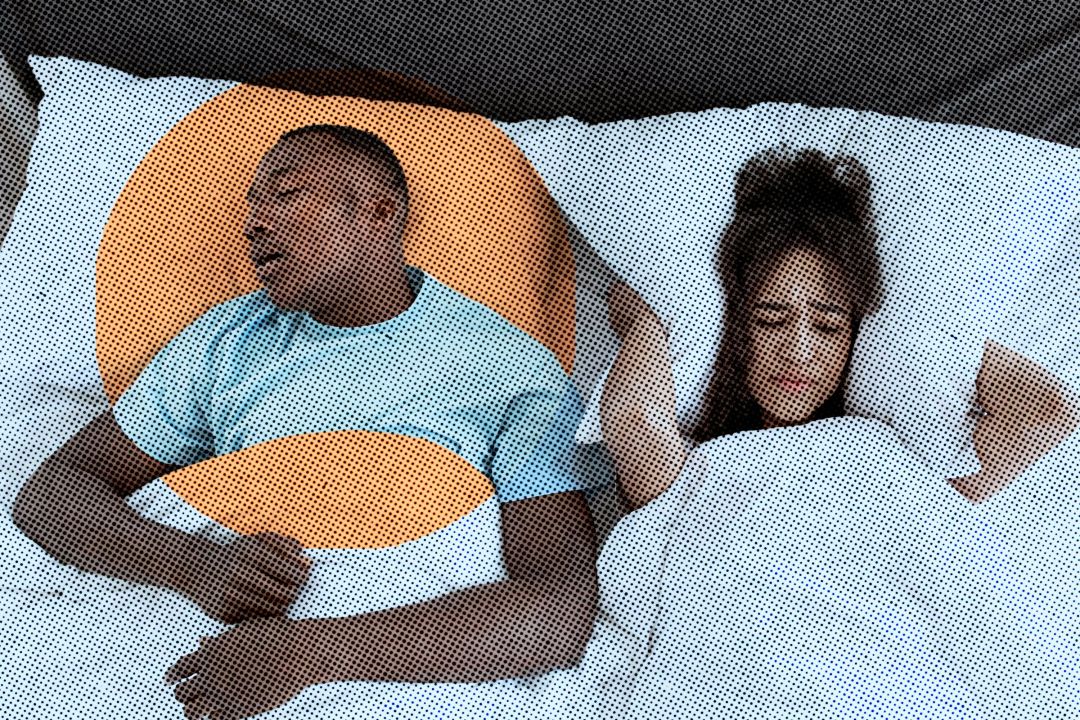What's the Latest Treatment for Sleep Apnea?

Image: Kari Perrin
Sleep apnea affects 30 million Americans, but only 6 million are ever officially diagnosed. Sleep apnea, which causes breathing to stop repeatedly while you're sleeping, makes it difficult to get a full night's rest and can lead to long-term complications like hypertension, heart attack or stroke, insulin resistance and cognitive decline.
There are treatments on the market that can help, like dental pieces or a CPAP machine, which is worn at night to deliver constant and steady air pressure. Many people, however, choose not to wear the machine because it's uncomfortable.
So are there other options for those suffering from sleep apnea? A new device called Inspire, a small impulse generator that's implanted beneath the clavicle, can decrease symptoms of sleep apnea. Dr. Mathew Edlund of Center for Circadian Medicine in Sarasota explains more.
What are the symptoms of sleep apnea?
There are two types of sleep apnea—obstructive and central sleep apnea. Obstructive is the most common type, occurs when throat muscles relax too much to allow normal breathing. Central sleep apnea occurs when the brain fails to signal the muscles to breathe due to instability in the respiratory control center. Edlund says people can have 20 to 30 apneas per hour.
Risk factors include age, obesity, diabetes and physical abnormalities like nasal obstruction, a low-hanging soft palate, enlarged tonsils or an overbite.
Symptoms include snoring loudly and feeling tired after a full night's sleep, episodes of no breathing or loud breathing, snoring, depression, dry mouth, fatigue and sudden awakenings with the sensation of gasping or choking.
What are the traditional treatments?
"Lifestyle changes are the first line of defense," says Edlund. "Losing weight opens the airways up, because a large portion of the population has too much tissue in the back of their throats."
Edlund says other options, aside from the CPAP machine, are medications for diabetes, maxillofacial surgery, surgery like tonsillectomy or adenoid removal, or mandibular advancement devices, like dental appliances, that prevent the tongue from blocking the throat and advance the lower jaw forward.
How does the Inspire implant work?
"This device has been in research for 10 years, and just came on the market two or three years ago because of Covid," says Edlund. "People realized how horrible their sleep was and that they hated CPAP machines."
The Inspire's generator is implanted beneath the clavicle and has wires that connect upward to the hypoglossal nerve in your chin, which produces tongue protrusion. When you sleep, the generator sends impulses to relax your tongue and airway, keeping you from experiencing apneas. The FDA-approved device comes with a remote to turn it on before bed.
Is it better than a CPAP machine?
"We do not have much research about whether Inspire is better or worse than a CPAP machine," says Edlund. "It really depends on the individual and their preferences."
If you've used a CPAP machine consistently and have decided it's not right for you, doctors can prescribe Inspire. Edlund says, however, that people are not always comfortable with an invasive procedure. Talk to your doctor about what's right for you.
Is Inspire covered by insurance?
Most insurance providers cover Inspire devices, including private insurers, Medicare and VA and military hospitals. Outstanding costs will depend on your plan. Prior to implanting the device, doctors will conduct an airway exam while you're asleep to determine if you qualify.
What are other long-term effects of untreated sleep apnea?
"Severe sleep apnea increases the probability of Alzheimer's disease due to hypoxia, or low oxygen saturation," says Edlund. "This has really big effects on cognition. And what people don't understand is that it's not how long apneas are or how long you go without them, but the amount of arousals you experience per night."
Edlund says when patients experience 100 or more apneas per night, they're not getting enough REM (deep) sleep. This stage of sleep is important for memory retention and for feeling awake during the day. "People don't realize that lack of REM sleep can cause damaging effects over time," Edlund adds.



